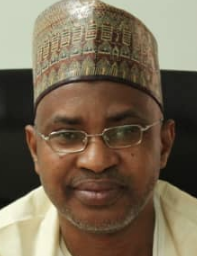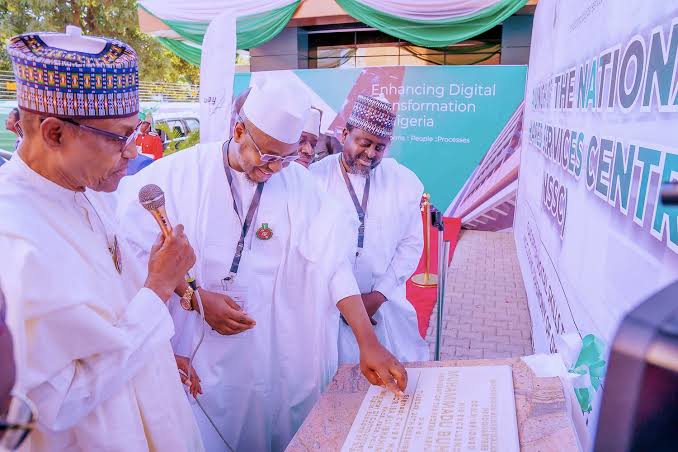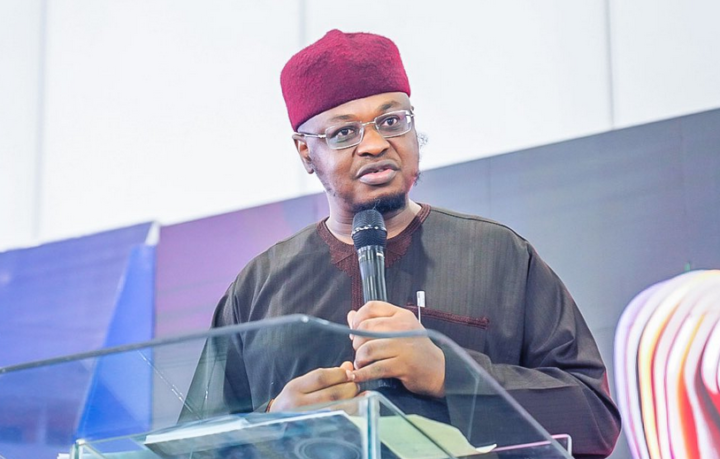Beyond the rage of electioneering politics, one of the most strategic facilities that hold the key to Nigeria’s escape from the doldrums of economic stagnation was recently launched in Abuja, Nigeria’s capital.
On 20th December, 2022, President Muhammadu Buhari commissioned the National Shared Services Centre (NSSC), which is to serve as a strategic resource to stakeholder organizations in both public and private sectors.
NSSC was established under the auspices of Galaxy Backbone (GBB) Limited, headed by Professor Muhammadu Bello Abubakar; an agency under the effective supervision of the Federal Ministry of Communications and Digital Economy, under the leadership of Professor Isah Ali Ibrahim (Pantami).
In his welcome statement, Prof. Bello extolled President Buhari’s inspiration impetus for the centre, which has been christened Muhammadu Buhari Galaxy Backbone Headquarters, and is now “a significant milestone in the country’s drive towards taking its place in the fast-changing world of the 4th Industrial Revolution (4IR).” He elaborated: “In keeping with its mandate, Galaxy has built a multi-platform ICT infrastructure connecting more than 400 Ministries, Departments and Agencies (MDAs) into a ‘one government’ network platform known as 1-Gov.net. and currently deploying terrestrial (Fibre) broadband connectivity to 30 States of the Federation. Galaxy Backbone has also made significant strides to inspire the confidence of its customers, including becoming the first public sector establishment to attain prestigious International Certifications that include the ISO 27001 in Information Security Management; the ISO 20000 Certification in IT Service Management as well as the Payment Card Industry Data Security Standard (PCI-DSS).”
Advertisement
He added that President Muhammadu Buhari’s dreams have been turned into reality through the able leadership of the indefatigable Minister of Communications and Digital Economy, Prof. Isa Ali Ibrahim (Pantami), who has seen the ICT sector grow to become a very significant contributor to the Nigerian economy.
On his part, Prof. Pantami profusely appreciated the President for his support for the digital economy, with turnovers in broadband/internet penetration, skills acquisition for global competitiveness, and infrastructure development, like the fibre optic cable, which was about 15,000kms in 2015, and increased to more than 60,000kms.
According to Pantami, there has been 2,255 interventions and programmes in tertiary educational institutions, secondary schools, as well as in some private schools. He added that “Quarterly revenues from ICT rose from N51 billion to N418 billion.”
These strides have attracted global interests, with reputable institutions like the Massachusetts Institute of Technology, United States among those monitoring developments in the sector.
Advertisement
The President is entitled to the credit for the establishment of the centre, which underscores his commitment to the growth of Nigeria’s economy and the potential of digitization to contribute to the acceleration of the country’s overall development process. Speaking at the inauguration, President Buhari said that aside from the revenues generated from the auctioning, the 5G spectrum is an additional fueling option for funding development. He also applauded the contributions of the digital sector in driving growth, creating employment and generating revenue for the country. He said the NSSC will provide services that are “swift, secure, and seamless’’.
He added that the information, communication, and technology sector (ICT) had accelerated the diversification of the economy and contributed an unprecedented 18.44 percent to the gross domestic product (GDP), close to three times the 6.33 percent contribution of the oil sector in the second quarter of 2022.
Indeed, among the success stories that the Buhari administration is entitled to tell, is the fact that, the National Shared Services Centre has been built with revenues generated by the Galaxy Backbone Limited. This is, without doubt, a crystal-clear definition of visionary, innovative and prudent leadership at the GBB.
He further applauded the efforts made by the Ministry of Communications and Digital Economy, and expressed delight at the unveiling and inauguration of a number of initiatives, which according to him, had “further expressed the government’s commitment to developing a sustainable digital economy in Nigeria”.
Advertisement
On November 28, 2019, Mr. President unveiled and launched the national digital economy policy and strategy for a digital Nigeria, whose implementation has led to giant strides and the unprecedented progress that we have made in less than one year since the unveiling. He said, “To ensure that the digital economy sector remains successful and in order to reduce the burden on citizens, I recently approved the suspension of the proposed excise duty in the telecoms sector, as any initiative that will lead to hardship for the citizens would not be pursued.”
He also recalled the approval of the national policy on virtual engagements for federal public institutions on October 14, 2020, which has enabled government to conduct online meetings, such as Federal Executive Council meetings and Council of State meetings to fulfill constitutional obligations in governance. He expressed satisfaction that the administration’s commitment to data promotion and privacy has received praise across the world.
Nigeria has increased digital identity enrolments from 39 million in October 2020 to about 92 million at the close of 2022. Putting these in perspective, President Buhari said, “The massive increase of about 63 million in about two years is a global success story and has led to several requests for partnership from countries within and outside Africa. I also approved the establishment of the Nigeria Data Protection Bureau on the 4th of February, 2022 to provide an institutional framework for data protection in Nigeria, in line with global best practices.”
Nigeria has made giant strides through the efforts of current government to enhance digital transformation. However, there is still a lot of ground to cover, a lot of room to bring in public and private sector organisations, communities and individuals to bridge the digital divide and enhance the gains of digitization. This underscores critical importance of the National Shared Services Centre (NSSC), powered by Nigeria’s digital infrastructure company, Galaxy Backbone (GBB).
What is NSSC all about and how it will contribute immensely to the development of the digital Infrastructure sector of the country and, by extension, fast-track the development the nation’s digital economy?
Advertisement
The NSSC is a one-stop shop for Ministries, Departments, and Agencies (MDAs) to interface with citizens; and also houses a cybersecurity operations centre, network centre, and call centre. A visit to the centre will convince one even more. A seven-story twin building which sits beautifully at Central Business District area of the nation’s Federal Capital Territory, is a sight to behold. One of the impressions one would come out with after a tour of that facility and interaction with its teams of the Datacentre, Cloud and Network Management experts, is that of elation that such a world class and secure platform actually exists in the country.
NSSC will help in bringing down the costs of technology-related services that are often times associated with the multiplicity of tech equipment across MDAs. The common services platform supports government’s vision of economy of scale by adopting e-government services across all its Ministries, Departments and Agencies (MDAs). This helps drive digital transformation not just for the government-to-government interactions, but for government to business and government to citizens’ engagement.
Advertisement
As a very critical infrastructure to the government and indeed the entire nation, security is at its very core. GBB’s Chief Executive, Professor Muhammad Bello Abubakar, has at different forums explained how important security is to GBB’s operations and how serious it is being taken to support government’s transversal applications and the entire nation. The NSSC in this regard, houses a security Operations Centre (SOC) amongst other things.
Furthermore, one of the most vital facilities within the Centre is the GBB Uptime Certified Tier III Datacentre. This datacenter is connected via GBB nationwide fibre optics ring network and seamlessly connected to its Kano tier IV data center. This Datacentre is not just for the government and its agencies but for all corporate entities, looking to leverage the infrastructure in providing services to their own clients.
Advertisement
The remarkable successes being continually achieved by the GBB is, without doubt, output of visionary leadership, teamwork, prudential management of resources, as well as placing greater emphasis on effective management of human and material resources by the Prof. Abubakar-led management at the GBB. “Everything revolves around the people. It is the people that make up an organization, not the other way around”, he said in a recent media interview. By people, contextually, he means the staff of any modern organization.
He further explains: “If you take all the staff of an organization out of the organization, all you would be left with is an empty building. At GBB, we see and treat our staff as the most highly valued asset, whose training and welfare are given all the seriousness professionally required.”
Advertisement
Views expressed by contributors are strictly personal and not of TheCable.
Add a comment







